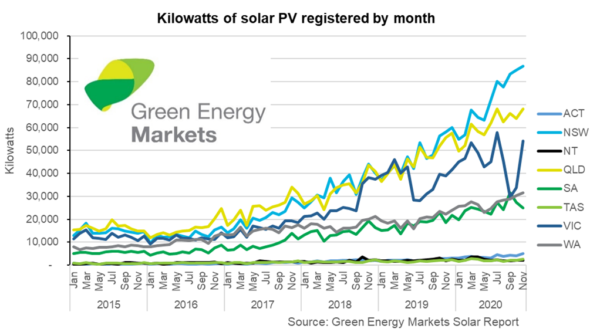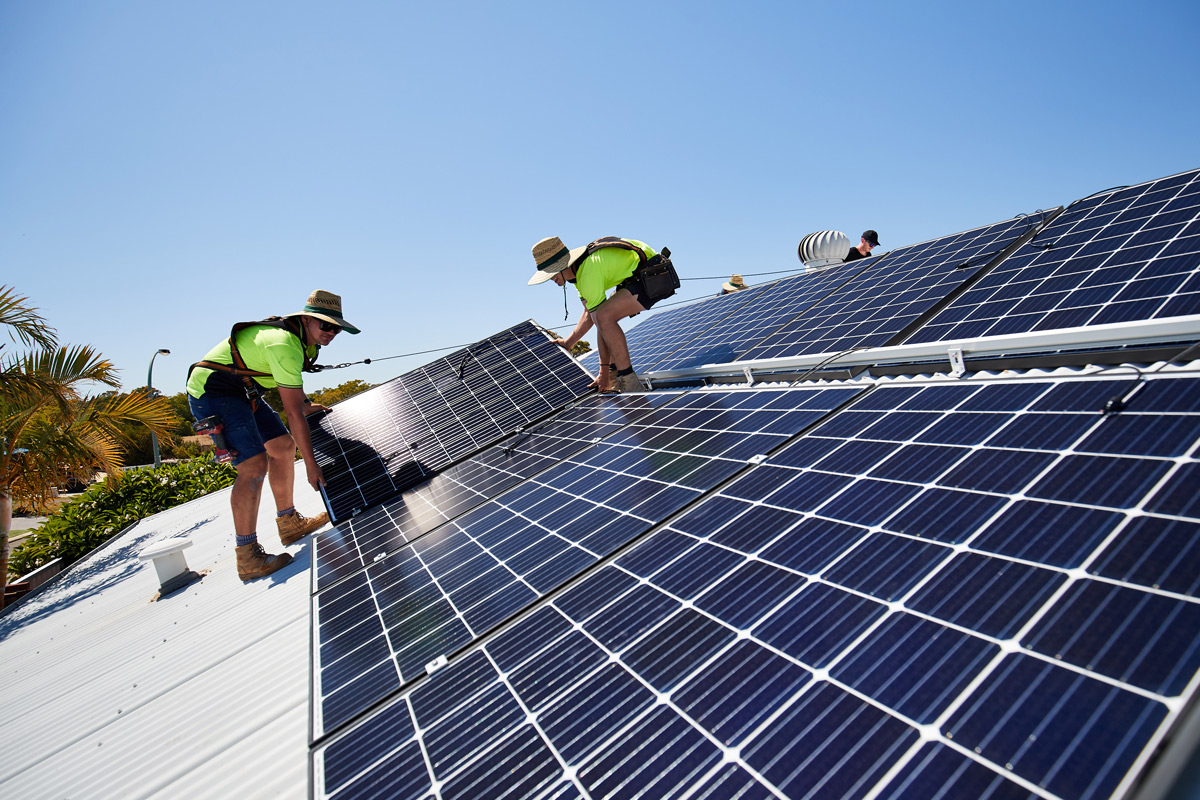From tomorrow, April 1, new rules for solar retailers, installers and manufacturers will come into effect. While these will require minor modifications from both installers and manufacturers, the biggest impacts will be felt among retailers. “There’s a whole new class for retailers, that’s the big one. And that will ultimately do the job that the voluntary codes of conduct were unable to do,” Grimes told pv magazine Australia.
Having recently taken over as sole regulator of the SRES scheme, the Commonwealth-run Clean Energy Regulator has far more power than its predecessor, the Clean Energy Council, and, Grimes says, is “deadly serious” about punishing noncompliance.
Formal declarations for retailers
Solar retailers will now need to make formal written declarations that every system it sells is going to perform as promised and meet standards when filing for small-scale technology certificates (STCs), the digital documents which inform the total solar rebate a system receives.
The intent here is to ensure that it’s not only solar installers who are on the line for badly performing systems, which Grimes says has largely been the case to date, but the retailers which sold the system.
“The problem in the solar industry is actually not poor technical installation, it’s dodgy sales practices,” he said. Since installers have always been heavily regulated, Grimes described the development to extend that regulatory framework around retailers “as, in my view, a very positive thing.”
More paperwork for installers
Grimes conceded the changes will involve more paperwork for installers, who are already “fatigued,” Grimes said, by skills shortages and Covid-19 mandates.
One of the major changes for installers will be the requirement of photographic evidence that the lead installer was onsite during the beginning, middle and end of the install. In short, they’ll have to take a lot of selfies on roofs.
Installers “don’t love” these changes, Grimes said. He’s increasingly hearing of installers fed up with the system and planning to move back into general electric. While he said he understands the frustration around increased paperwork and the feeling on endless bureaucracy, he implored installers to “stick with it” saying the improved regulatory framework will be beneficial in the longterm.
The changes for installers, he said, will “catch out the bottom feeders and ultimately that’s a good thing for the industry.”
Serial number tracking
Also kicking in tomorrow is the requirement for all solar panels and inverters to have their serial numbers recorded in a Clean Energy Regulator ledger.
Grimes estimates 70% to 90% of the market are already doing this, but it will officially be mandatory starting April.

Green Energy Markets
It’s worth noting these new ledgers are not the same as the Solar Panel Validation initiative launched in 2018. While both contain serial number tracking, the two frameworks will sit side by side. If manufacturers or importers are already participating in the Solar Panel Validation scheme, ensuring those same serial numbers are being transferred across to the Regulator’s ledgers should, by all accounts, be a simple process.
High level changes in 2023
As mentioned, the Clean Energy Council had previously overseen many elements of the SRES scheme, including accreditation of installer and retailer services as well as equipment components. This will no longer remain the case.
The Clean Energy Regulator has signalled it plans to approach the market to select its accreditation service providers. Which means, Grimes says, the accreditation services will be “market tested” and awarded to a provider which will need to outcompete others to prove it will have the best outcome, integrity, and service.
It’s possible the Clean Energy Council will be able to win back its role in this way, but the Regulator has also flagged it could provision multiple bodies – moving away from a monopoly model which Grimes described as “poor public policy.”
“The principle of actually having contestability for [accreditation services] is a good thing for the clients, which are the solar industry,” he said.

Australian Solar Council
Grimes says there will also probably be some contestability in terms of equipment component accreditations. “So the approved components list, it will be marked tested. Again, a good development,” he said.
More details on how the Regulator plans to move forward here and which bodies will oversee solar accreditations is expected in the next year.
Regulator with teeth
Grimes says the fact the Clean Energy Regulator is now the authority overseeing the SRES scheme marks an important change.
As a Commonwealth agency, the Regulator has considerable legal prosecution powers as well as tools for in-depth oversight.
This, Grimes says, will go a long way for stamping out solar “phoenixing” which has long been considered an issue in Australia’s landscape. “Phoenixing” is when companies close to skirt their ongoing obligations to customers and often debts, then set up shop with the same personnel under a new company name.
The new Regulator is able to track both company directors and office holders, making this practice in the solar industry untenable, Grimes believes.
He thinks the industry may well see “heads on spikes” to serve as a warning to others.
For more information on the changes and how to comply, visit this Clean Energy Regulator webpage.
This content is protected by copyright and may not be reused. If you want to cooperate with us and would like to reuse some of our content, please contact: editors@pv-magazine.com.









By submitting this form you agree to pv magazine using your data for the purposes of publishing your comment.
Your personal data will only be disclosed or otherwise transmitted to third parties for the purposes of spam filtering or if this is necessary for technical maintenance of the website. Any other transfer to third parties will not take place unless this is justified on the basis of applicable data protection regulations or if pv magazine is legally obliged to do so.
You may revoke this consent at any time with effect for the future, in which case your personal data will be deleted immediately. Otherwise, your data will be deleted if pv magazine has processed your request or the purpose of data storage is fulfilled.
Further information on data privacy can be found in our Data Protection Policy.